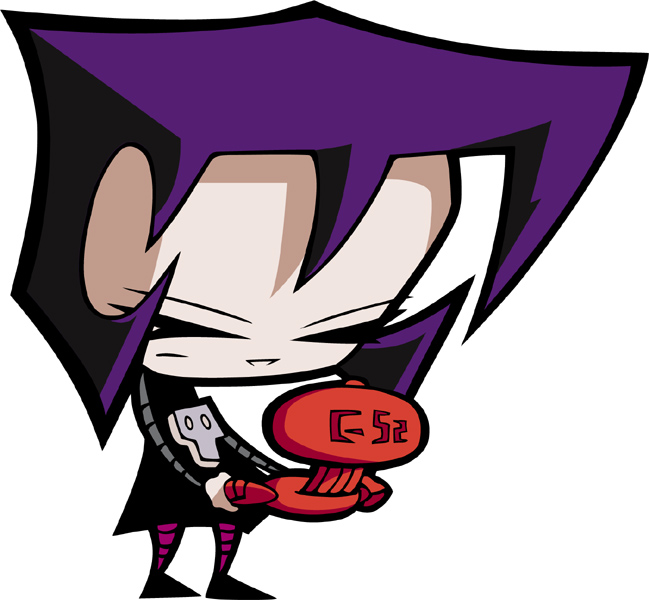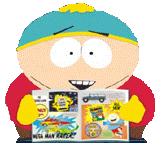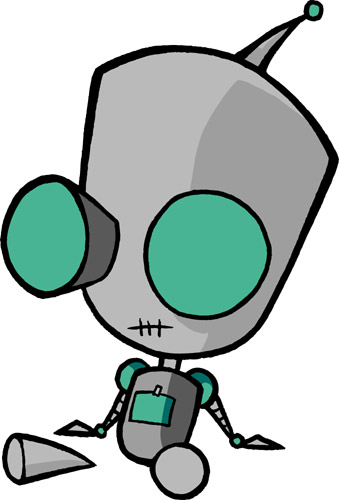September 03, 2007
From the DUUUUUH file
Kids whose parents model responsible drinking at home, including letting the child have small amounts of alcohol in a family setting, are ONE THIRD as likely to develop severe binge-drinking behaviors in their teen and young adult years.
From the Wall Street Journal:
What kind of parents would ever allow their children to drink at home? Doesn't this put youngsters at risk?So why file this under DUH? Because it's the first principle of adolescent psychology: If you want a kid to NOT do something, take away its taboo. The driving force of childhood is to find one's place in the world. To learn the rules and decide which are important to follow, and which aren't. Teenagers in particular make this an art form, with their kid's minds in little adult bodies. Kids who occasionally share small amounts of alcohol with their parents do not see drinking as either rebellion or escape, because it's something they do in the confines of the family. It's just not "cool" if Mom and Dad do it with you, right?
The answer to the first question is simple. Most of the state laws include a specific exemption for children drinking at home during family and religious ceremonies. Observant Jews, for example, traditionally serve children small glasses of wine during Friday night Sabbath ceremonies. Other cultures also begin socializing children into drinking at an early age--including Mediterranean societies such as Italy, Greece and Turkey (and non-Mediterranean societies such as China).
As for the second, two international surveys--one conducted by the World Health Organization--revealed that these Mediterranean countries and Israel had the lowest binge drinking rates among European adolescents.
In societies where children drink with their parents, this typically means giving a kid a small amount of wine or other alcohol, often watered down on special occasions or a family dinner. Many European countries also lower the drinking age for children when they are accompanied by parents. In the United Kingdom, for example, the legal age is 18, but for a family at a restaurant it is 16. In France and Italy, where the legal age is 16, there is no age limit for children drinking with parents.
But what might all of this mean for teen drinking problems in America?
Several studies have shown that the younger kids are when they start to drink, the more likely they are to develop severe drinking problems. But the kind of drinking these studies mean--drinking in the woods to get bombed or at unattended homes--is particularly high risk.
Research published in the Journal of Adolescent Health in 2004 found that adolescents whose parents permitted them to attend unchaperoned parties where drinking occurred had twice the average binge-drinking rate. But the study also had another, more arresting conclusion: Children whose parents introduced drinking to the children at home were one-third as likely to binge.
"It appears that parents who model responsible drinking behaviors have the potential to teach their children the same," noted Kristie Foley, the principal author of the study. While the phrasing was cautious, the implication of the study's finding needs to be highlighted: Parents who do not introduce children to alcohol in a home setting might be setting them up to become binge drinkers later on. You will not likely hear this at your school's parent drug- and alcohol-awareness nights.
This is not to say that it's ok for parents to do this with other drugs. Alcohol is the least likely of the drugs of abuse to have adverse consequences on brain development, especially in the small quantities relevant to these studies. A single dose of cough syrup is likely to have more alcohol in it that whatever a child consumes in a responsible home setting.
Nice to see common sense coming out of psychosocial research for a change.
h/t HWNNL
Posted by caltechgirl at September 3, 2007 12:14 PM | TrackBack
I agree wholeheartedly with your statement:
"Because it's the first principle of adolescent psychology: If you want a kid to NOT do something, take away its taboo."
I do not believe, however, the comparison with European and Mediterranean Society's is comparing apples to apples.
I believe the 'drinking' sited in most of these studies is referring to an alcoholic beverage as an accompaniment with a meal. That would be wonderful if it was the case in the U.S., but I believe it is far from how drinking is viewed here.
In the United States, the psychology of drinking is not as an accompaniment to a meal but rather the drinking is viewed as an end in itself.
And it's not just the parents doing the influencing.
Our TV screens are filled with the idea that drinking is THE MOST IMPORTANT activity, bar none. A recent Heineken ad tells us "It's all about the beer"; another beer ad shows a young girl's excitement over a blue strip on a pregnancy test completely dashed by her husband's excitement over his beer label turning blue; and my personal 'favorite', a couple of years ago a commercial shows the party in Heaven coming to a halt because the beer runs out. The angels then cause cases of beer to fall off a delivery truck and the broken bottles' spirit floats up to heaven, so the party can resume.
The U.S. has elevated drinking - and particularly beer drinking - as the ultimate means of having a good time.
A meal with the family never enters the picture.
Until we urge our lawmakers to initiate laws to reduce the glamorization of beer drinking on TV, similar to the restrictions on cigarette advertising, drinking in this country will always be the supposed cool thing to do.
Joe Lukawitz
Nashua, New Hampshire
A drink with a meal is most assuredly NOT the kind of drinking most Americans think of, but this is the behavior under study here, and it seems that this type of drinking at home can prevent the kind of drinking/partying behavior most common among teens and young adults in this country. Amazing.
Posted by: caltechgirl at September 3, 2007 06:36 PMI have pictures of sherlock as a 7 or 8 year old slamming shots of Aguardiente (some serious liquor).
We drink socially, but are more likely not to drink if RTY is with us (mostly because we have her so infrequently, we don't want alcohol hindering in any way). We are very likely, however, to have a glass of wine with dinner and save the mixed beverages for parties.
(Well, except for from about the end of September through the beginning of January when I have my seasonal depression and drink vodka like water to ameliorate my mood.)
Posted by: wRitErsbLock at September 3, 2007 06:37 PMThis may be one of those cases where it's difficult to tease out the elements of causation vs. correlation. Alcoholism tends to run in families, so if you start out with alcoholic parents, there's a good chance their kids will abuse alcohol too, regardless of what behavior the parents model (which, given their own issues with alcohol, will either be teetotaling or hard-core abuse, while healthy parents model healthier, more moderate behavior).
Posted by: Xrlq at September 3, 2007 08:40 PMI realize I'm a data point of one, here, but - when my parents drank, it was wine (or a beer) with a meal. My brother and I were allowed tiny tastes of wine (or beer, except I never could get past the SMELL of beer to want to taste it) as teens.
Neither of us drank in college (I don't drink now after learning that even a half-glass of wine is enough to fire up a nearly-instantaneous migraine). My brother drinks beer and wine but only with meals, and never to excess.
I think maybe having parents who behave responsibly CAN help counteract the "slam some brewskis!!!" model that is presented for American drinking. (If I think about consuming alcohol, usually my first thought is of a couple at the dinner table sharing a half-bottle of wine over dinner.) I always thought the kids in the dorm who got wasted every Saturday night (and paid for it every Sunday) were kind of stupid. Observed from the outside, it seemed to me that the high wasn't worth the hangover, or the fear of having done something really irresponsible while under the influence.
Posted by: ricki at September 4, 2007 05:28 AMCTG - you are absolutely correct.
While there will always be alcoholics - I've always said we could very likely stop much of the binging and over the top drinking if we stopped looking at the drinking itself as the most evil thing in the world.
By all means have extremely strict rules about drinking and driving... but leave it alone when people are drinking at home and will be staying there. *sigh*
We're being pushed back into Prohibition and we all know how well THAT worked. Sheesh!
Posted by: Teresa at September 4, 2007 08:52 AMI was able to drink at the tender age of 18 -yeah, I'm old. My children will have tasted several beers and beer styles before they reach the age of 21. In fact, if they want to watch the game with their old man while sipping on a brew, I'll be glad to supply it.
I'll admit to having broken the law since the federal government decided to extort the states during the Reagan administration. I use to work with some 18-20 year olds, pretty responsible kids. After a 60+ hour week, they wanted to chill out in front of the TV while drinking a beer. I knew that they wouldn't be driving anywhere so I bought them beer. And I'd do it again. Like, say, when my children are somewhat older.
This "federal" law has irked my since it was enacted, and I wasn't even affected by it. I contend that if you aren't deemed adult enough to drink responsibly, you shouldn't be able to vote, serve in the armed forces, or be tried as an adult. I'm all in favor of extravgant punishment for douchebags who drive drunk, but treating 18-20 year olds like children is absurd.
For what it's worth, there are some people advocating raising the drinking age to 25 or more, which should be a tipoff that this isn't about protecting the children. It's merely another step down the roads towards Prohibition, Part II.
Posted by: physics geek at September 4, 2007 09:51 AMMy parents gave us small glasses of wine on holidays (basically, whenever everyone else was having it, which when I was little was just holidays). If they were having a beer, they let us taste it. They never drank to excess in front of us. It works. It was never some weird mystical thing that I didn't know about.















